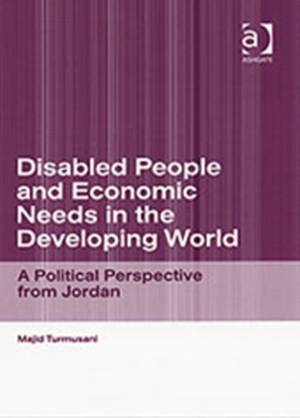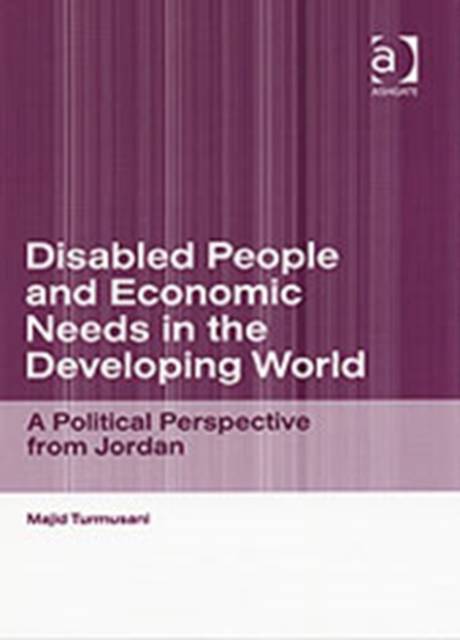
- Afhalen na 1 uur in een winkel met voorraad
- Gratis thuislevering in België vanaf € 30
- Ruim aanbod met 7 miljoen producten
- Afhalen na 1 uur in een winkel met voorraad
- Gratis thuislevering in België vanaf € 30
- Ruim aanbod met 7 miljoen producten
Zoeken
Disabled People and Economic Needs in the Developing World
A Political Perspective from Jordan
Majid Turmusani
Hardcover | Engels
€ 195,95
+ 391 punten
Uitvoering
Omschrijving
This book explores the economic situation of disabled people in developing countries focusing on rehabilitation and uses particpatory framework to community development. Although dealing specifically with a case study from Jordan, this needs assessment study provides comparisons with other developing societies. The author considers the prospect for future improvement in disability policy at a time when state budgets are already over stretched by widespread poverty, unemployment and poor health conditions. The book is divided into three parts. Part one explores disability and economic rehabilitation within global context and sets the scene for understanding what disability is and the impact of having disability across cultures with emphasis on the experience of discrimination. Part two deals with disability theory and practice in Jordan in terms of economic policies and provisions available for disabled people. Part three presents concluding remarks on the rise of disability politics in developing countries and the development of a participatory policy agenda.
Specificaties
Betrokkenen
- Auteur(s):
- Uitgeverij:
Inhoud
- Aantal bladzijden:
- 200
- Taal:
- Engels
Eigenschappen
- Productcode (EAN):
- 9780754633297
- Verschijningsdatum:
- 28/04/2003
- Uitvoering:
- Hardcover
- Formaat:
- Genaaid
- Afmetingen:
- 152 mm x 219 mm
- Gewicht:
- 394 g

Alleen bij Standaard Boekhandel
+ 391 punten op je klantenkaart van Standaard Boekhandel
Beoordelingen
We publiceren alleen reviews die voldoen aan de voorwaarden voor reviews. Bekijk onze voorwaarden voor reviews.











